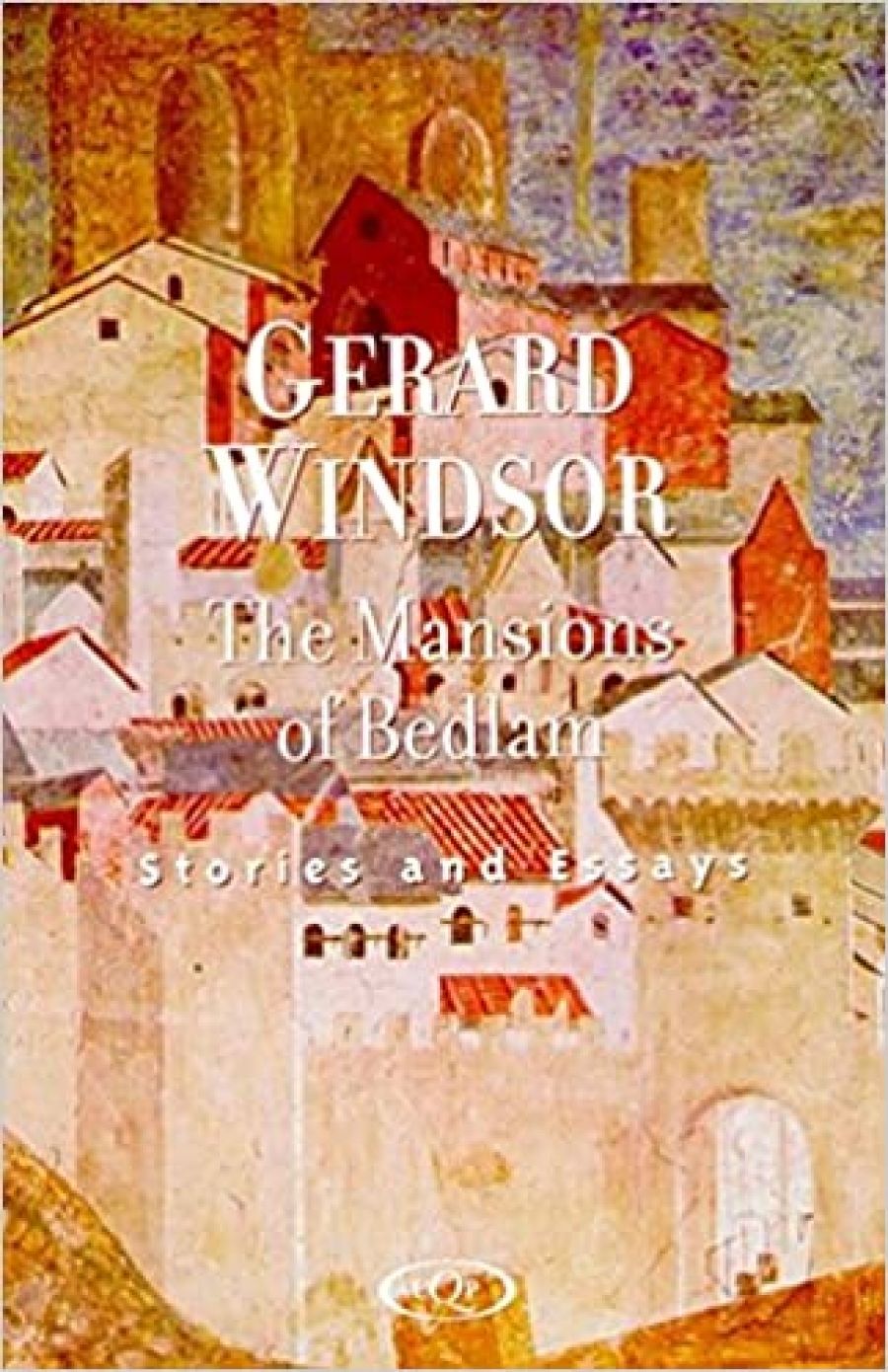
- Free Article: No
- Contents Category: Essay Collection
- Review Article: Yes
- Online Only: No
- Custom Highlight Text:
Gerard Windsor had a rocky start to his writing life. Out of the Jesuits after seven years, he scored a contract with his old school, Riverview, in Sydney, to write its centennial history. I was one of the alumni he interviewed; I remember suggesting that he take steps to guarantee the publication of his text. After all, I argued, a school run by a religious order was like a family commissioning its history: it would have tender feelings towards its dead and be wary of any diminution of their legends.
- Book 1 Title: The Mansions of Bedlam
- Book 1 Subtitle: Stories and Essays
- Book 1 Biblio: UQP, $22.95pb, 416pp
- Book 1 Readings Link: https://www.booktopia.com.au/mansions-of-bedlam-gerard-windsor/book/9780702231964.html
Well, it proved to be an accurate warning. I knew something was going wrong when I ran into an old master at a funeral. ‘We’ve got young Windsor writing the school history,’ he grumped. ‘He says that Father Lockington [Rector 1924–31] was a philistine. Well … you can’t say that … You might say he didn’t like music.’ I recalled that Riverview’s great alumnus, Christopher Brennan, also thought Father Lockington was a philistine; but he wasn’t writing a commissioned history of the school. So I wasn’t astonished when I heard that Windsor’s history had struck the rocks and that the school had declined to publish it. They had that right of course; having paid for it, they could publish or be damned.
Perhaps only another writer can share the pain of losing a book, whether by court action or fire in the warehouse or censorship. And to lose your first book – that can destroy you. Somehow Windsor survived. In the past two decades, he has published half a dozen books. A familiar figure at writers’ festivals and literary days, he appears regularly in Eureka Street and, somewhat oddly, in the Adelaide Review. His stray writings are notable for two things: his constant theme is himself and his own world; and he commonly writes with a drop of acid in his ink. His is a distinctive voice in Australian letters, precise, honest and provoking. He makes enemies; but his admirers, myself included, are devoted. Now he has collected these stray writings and some that have not appeared in print before this.
The Mansions of Bedlam: Stories and Essays is a fat book, so one is prepared for some makeweight stuff. Put to it, I would have cut the book reviews and most of the early stories, which read like a learner’s exercises. Others may enjoy discovering these stories for the first time and seeing a literary precisionist mastering his craft. Helpfully, each entry is dated (although without its locus of publication, if any). Apart from the stories, the book divides into three main catchment areas: the literary life, the experience of being Catholic in either Ireland or Australia, and the intimacies of Windsor family life.
Of the literary life pieces, the most adventurous was a contribution on book reviewing given to the 1986 Adelaide Writers’ Week, in which Windsor postulated a girls’ and mates’ mafia among book reviewers. The chairman of that session was Peter Goldsworthy and those in the know tried to read his face, since Windsor had just reviewed him savagely in the Bulletin; but urbanity won the day. Afterwards, a long queue waited to go mano-a-mano with Windsor, some of them editors who recognised controversial copy when they got a sniff of it. For a while, Windsor’s horror speech became the literary drama of the year, something he catalogues enjoyably in the next piece in this book.
As a writer, Windsor walks the wire without a net and with his eyes wide open. He knows he may come to grief. In his memoirs of Jesuit life, Heaven where the Bachelors Sit (1996), he retold jokes about an elderly priest who is a sort of chaplain to the rich and powerful. There are echoes of the subsequent outrage here, alongside his own puzzlement at how anyone could have taken offence. I imagine the old priest and his friends will remain unassuaged.
Closer to home, in his next book, I Asked Cathleen to Dance (1999), an account of his sexual awakening while travelling in Ireland, he wrote about committing adultery. The story is bleak, clinical and quite unerotic. Another story records what he told the priest in the confessional: ‘Twice? Five times? Ten times’; ‘Fewer than ten,’ I interrupted. ‘Roughly. But definitely fewer than ten.’ Such raw honesty may be unique in Australian literature – jokes about confession are more common. And once again Windsor’s writing gave offence this time to his wife:
When the book appeared, it was her view, and that of a considerable number of friends, that even this much of a portrayal was outrageously hurtful, and that that chapter should have been omitted. Dirty linen should not have been washed in public.
His story had shown her as quite blameless, but didn’t this make her an object of sympathy or (worse) pity? The writer squirms, yet his baggy prose shows that in his heart he knows he may have gone too far. His next book is awaited with interest.


Comments powered by CComment